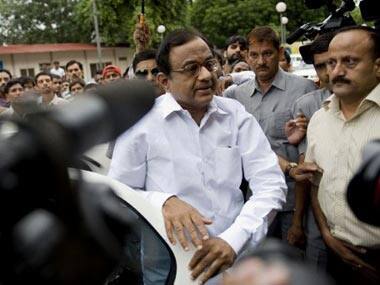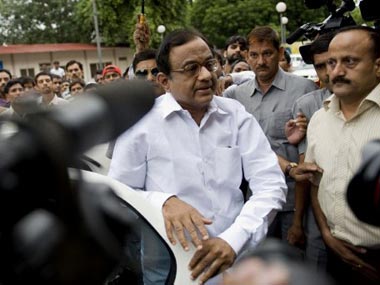Addressing the media after presenting the Union Budget 2013, Finance Minister P Chidambaram said he hoped to pass the Direct Tax Code Bill at the end of the Budget Session of Parliament, adding that Budget is a multi-stage exercise as more measures and decisions will be announced during the passage of General Budget and Finance Bill.
Given the constraints of the economy, the Budget did not want to surprise markets by spooking investors or burdening a certain class of society, said Chidambaram. And why would he? After all, he had merely promised attaining his fiscal deficit target, which he seems to have accomplished.
Admitting that the government could have done more, Chidambaram said measures can only be taken once the wheels have turned. “The main message to give out is that India is following a path of fiscal prudence.”
[caption id=“attachment_644520” align=“alignleft” width=“380”] AFP[/caption]
AFP[/caption]
He also said that Tax Residency Certificate (TRC) will not be enough to claim benefits under the Double Taxation Avoidance Agreement (DTAA), a move to prevent tax evasion under the garb of treaties.
The provision over TRC has caused havoc in the market where Sensex tanked by over 290 points and Nifty by 100 points.
Chidambaram said tax treaties contain two conditions – residency and beneficial ownership.
“As far as residency is concerned, we will accept the certificate of residency that he produces from that country. As far as beneficial ownership is concerned, that is a question of fact.
“We are not doing anything unfriendly to the foreign investor. You have to satisfy two conditions,” he said.
Around 42 per cent of FDI and about 40 per cent of FII fund flows into India are routed through Mauritius. It is believed that a large majority of them are third country investors, which use the Double Taxation Avoidance Convention (DTAC) with Mauritius for saving capital gains tax. India has been pressing for re-negotiating the Mauritius treaty, seeking to plug the loopholes and revenue leakages.
Moving on to UPA’s biggest problem, inflation, the FM noted that blaming the RBI is not a solution, even though he was confident that the RBI will do its part. Is he hinting at a rate cut in the next monetary policy? After all even the RBI today seemed impressed with the government’s borrowing plans and lauded its efforts to reduce subsidy.
And Chidambaram made sure the press noted this. “Fuel subsidy bill will also be lower in 2013-2014 due to cap on subsidised cylinders and correction of diesel prices,” he said.
On Direct Tax Code, the FM will try and bring back the Bill by the end of the Budget Session of Parliament. On GST, however, he said the ball is in the state government’s court as he has already set aside Rs 9000 cr as balance for first installment of compensation.
“We are committed to goods and services tax, the ball is with the state governments.”
He also clarified that the uncertainty over 2G auctions will be resolved as spectrum will be sold, unlike what was witnessed in the past auctions.
The FM was also confident of achieving his growth target of 4.9 percent. After all he is advised by the Prime Minister’s Economic Advisory Council, which changed its growth estimate more than three times last year!
Chidambaram also felt that despite the expenditure cuts, he had allocated enough to ministries. Aggregate demand is boosted by government expenditure which can also result in inflation, while too little expenditure will harm growth. “The skill is finding in the right amount of expenditure,” said Chidambaram.
Defending the setting up of an All-women’ bank, he said there is a bias to lend towards men against women, which is why this bank will address their concerns. It will employ predominately women and lend mostly to women. It will not only address self-help group issues along with encourage gender equality.
Moreover, the surcharge on the rich is not likely to lead to tax evasion since it is only a token cost that someone has to pay who already makes a profit of Rs 10 crore annually. “I have not used the word super-rich,” he said, adding that the surcharge was just a bridge. He said the bulk of the Rs 13,300 crore gains projected from direct taxes in the Budget to come from the 10 per cent surcharge imposed on 42,800 super-rich individuals.
)